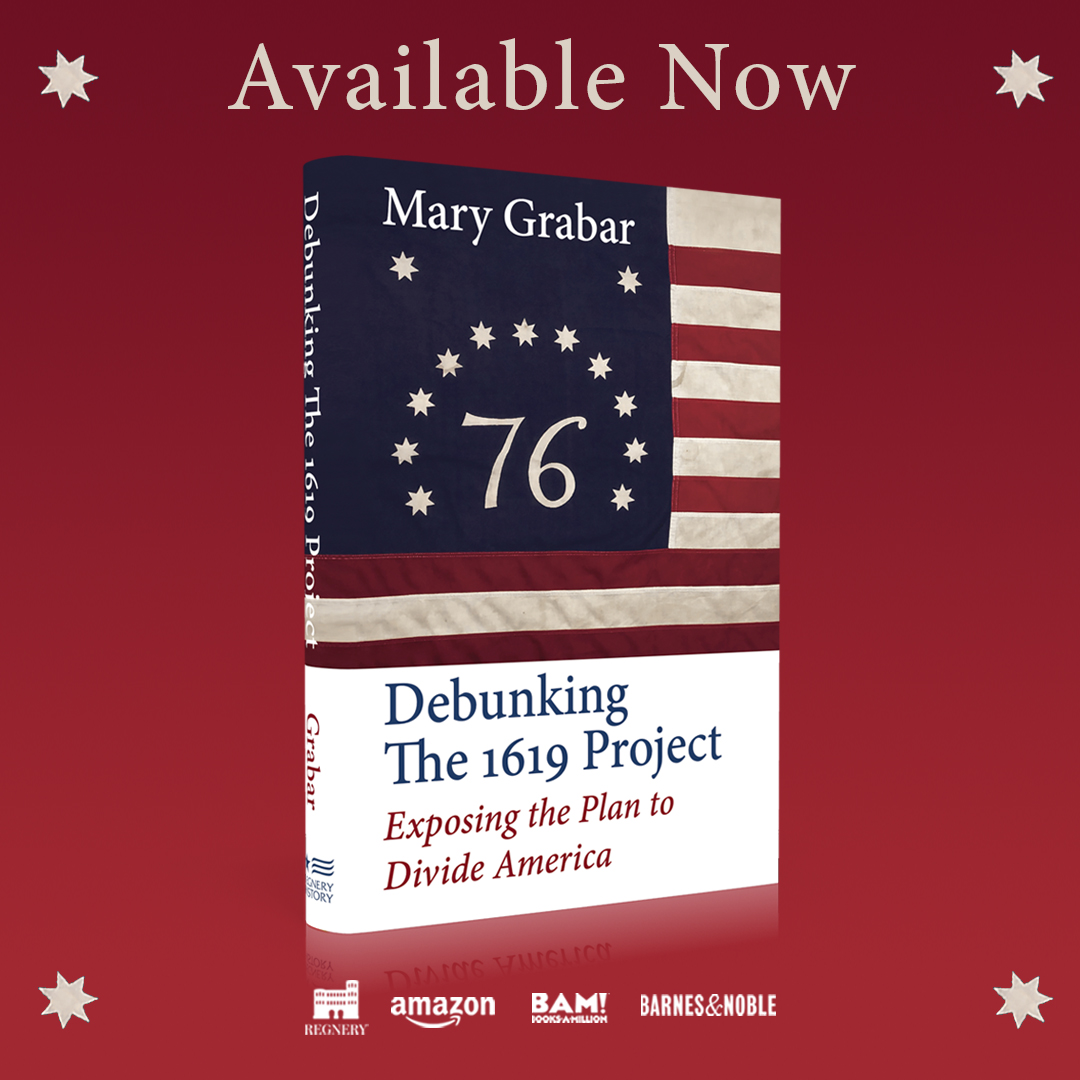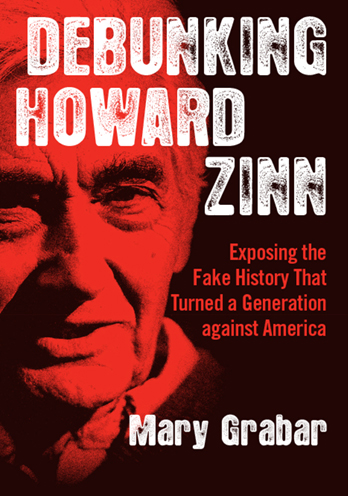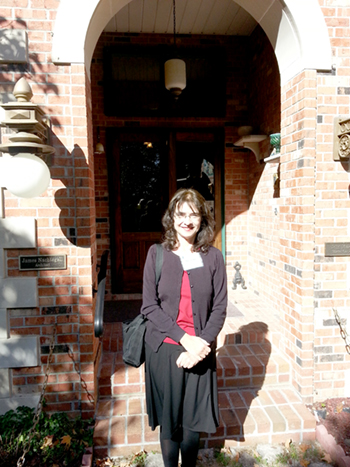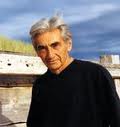 A Ho Chi Zinn Week by Mary Grabar, posted July 27, 2012: The historians have spoken! And they have deemed The Jefferson Lies by David Barton and endorsed by Glenn Beck as the least credible history book in print. That was the finding in a poll on the History News Network. Among those criticizing Barton's book were two professors from Grove City College.
A Ho Chi Zinn Week by Mary Grabar, posted July 27, 2012: The historians have spoken! And they have deemed The Jefferson Lies by David Barton and endorsed by Glenn Beck as the least credible history book in print. That was the finding in a poll on the History News Network. Among those criticizing Barton's book were two professors from Grove City College.
Coming in close (very close) behind, though, was Howard Zinn's A People's History of the United States. (But HNN's headline named only Barton.) Zinn earned the ire of 641 historians as opposed to the 650 who condemned Barton's book.
Yet, while Dissident Prof sees Howard Zinn's Marxist polemic showing up on high school and college syllabi regularly, she never sees Barton's book.
Mere babes are being introduced to Zinn too, through a version called The Young People's History of the United States. The book is doing quite well in terms of sales. Its publisher Seven Stories, according to a July 26 article in Publishers Weekly, has a "strong social justice and narrative component." Seven Stories founder Dan Simon was quoted in the article as stating, "'The few books we've done for young adults and children have been well-received. A Young People's History of the United States is our bestselling backlist title." Now the company is launching its first children's imprint, Triangle Square Editions, which will specialize in children's literature that tells "'personal stories of courage and commitment.'"
Hmm, wonder if Grandma is buying A Young People's History as a Christmas present? Or is a teacher ordering it from the Zinn Education Project?
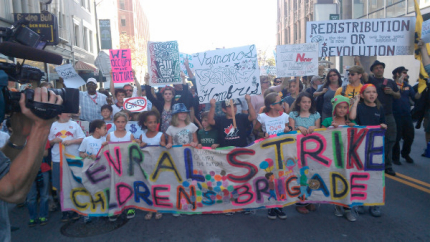 But we suppose that after the kiddos are introduced to this creepy, conspiratorial Marxist tract (read my report about Zinn's kiddie propaganda) in middle school, they can then graduate to reading the adult version, especially if they are bright enough to be in AP history classes. Here in Georgia, in Gwinnett County, the book was assigned in Brookwood's AP U.S. History classes for summer reading.
But we suppose that after the kiddos are introduced to this creepy, conspiratorial Marxist tract (read my report about Zinn's kiddie propaganda) in middle school, they can then graduate to reading the adult version, especially if they are bright enough to be in AP history classes. Here in Georgia, in Gwinnett County, the book was assigned in Brookwood's AP U.S. History classes for summer reading.
Don Feder recently shared some of his remininscences of being Howard Zinn's undergraduate advisee at Boston University in his recent column that ranges over to the current political situation we find ourselves in this election season.
Zinn had celebrities extolling his scholarship on the "people" (who happened to be famous Marxist radicals or else just anonymous) in the movie Good Willing Hunting and then in a film called The People Speak! Dissident Prof has seen The People Speak! extolled to educators and "community groups." A People's History was the staple text in every Occupy Wall Street library that served those having the leisure time to camp out in urban public parks.
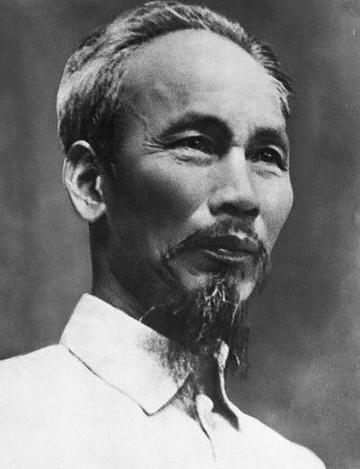 As Feder recounts, Professor Zinn did not care about the proletariat of Roxbury, for back in the late 60s he called for rioting there--from the safety of his cushy suburb of Newton.
As Feder recounts, Professor Zinn did not care about the proletariat of Roxbury, for back in the late 60s he called for rioting there--from the safety of his cushy suburb of Newton.
Such "privileged pinkos" (as Mr. Feder calls them) like Ho Chi Zinn (to quote Mr. Feder again on the popular endearment for Zinn) love to see violent revolution--just as long as it doesn't affect their property values.
Alas, do the good citizens of Gwinnett County know what they are setting their children up for when they enroll them in AP U.S. History classes in what is deemed one of the best school districts in Georgia? The almost least credible history book in print by Ho Chi Zinn.
(The Wall Street Journal noted that Zinn's tract inspired the "most intense discussion"; the New York Times led off by stating that though the political direction of the country was unknown in terms of elections, conservatives were winning in the bad history category!)
Some of the leftists commenting in HNN admit that Zinn's book is inaccurate; yet they defend it as a "flawed but necessary corrective to the overly heroic stories that prevail in many classrooms" (to quote the Times' summary). Really? Which edition of history or social studies textbooks? Which college of education graduate? Of 1950? Presumably Zinn offers the history of the lowly common people, heretofore overlooked. That is not the case, for most of the "people" in the People's History are radicals well-known in Marxist circles. But should classrooms be teaching bad history as a social corrective? After all, two conservative professors from the Christian Grove City College criticize a book that falsely claims that Thomas Jefferson never wanted a separation between church and state.
So who are the honest historians and the real intellectuals? Those on the right or those on the left?

